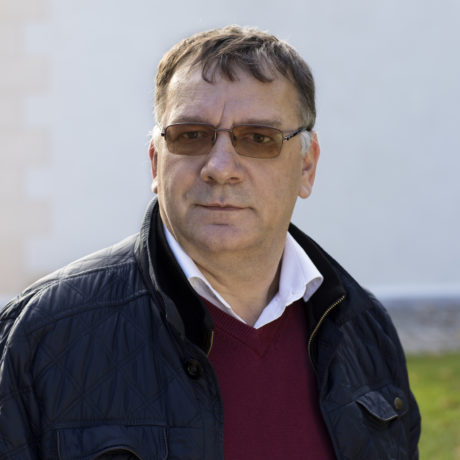– Bosnia and Herzegovina has been run by parties that are more or less nationalist since 1995. All three ethnic groups are an oppressed minority in different parts of the country, and the different nationalist parties fosters a fear within their etnic gorup that they are not protected under the rule of other ethnic groups. This fear makes people base their voting on ethnicity rather than other political issues, says Enver Djuliman, senior advisor for the Western-Balkans with the Norwegian Helsinki Committee.
On Sunday Bosnia and Herzegovina is holding elections for the parliament and the presidency. To ensure representation for the three major ethnic groups the country has a presidency that is split three ways. A Serb, Croat and Bosniak president is to be elected. This is a result of a peace treaty signed in Dayton about twenty years ago.
Election fraud is likely
There have already been indications that election fraud and corruption will affect the coming election.
– The Bosnian election commission has registered 8764 voters over the age of one hundred. A different state institution however is saying that there are really only 767 one hundred-year olds in the country. That means there are several thousand dead people who are registered to vote, explains Djuliman.
He also thinks the number of people registered to vote in Croatia has increased by a suspicious amount.
– Every hour the number of people who claim it is necessary for them to vote by mail because their identity has been stolen increases. It is publicly known that political parties will pay you to vote for them, he explains.
Every hour the number of people who claim it is necessary for them to vote by mail because their identity has been stolen increases.
Enver Djuliman
The European Court of Human Rights in Strasbourg has ruled that the Bosnian election system is discriminatory as only members of the three major ethnicities can be elected, but there has not been taken any measures to change the system before this election.
– International institutions, such as the UN, EU and the Council of Europe, could work to implement reforms in Bosnia and they have a lot of means to influence, but they do not use them. This has allowed among others Russia and Turkey to use this opportunity to increase their influence in Bosnia, concludes Djuliman.
A new Georgian president
Georgia is electing a new president on the 28th of October. The Georgian president has more of a symbolic role than countries like France and the US, but is still important as a possible counterweight to the government.
The party Georgian dream, run by the billionaire Bidzina Ivanishvili, are dominant in the country’s politics and has had the prime minister since 2012.
– There is a relatively open field in this election. In addition to the candidate supported by Georgian dream there are two other candidates, with the popular Davit Bakradze chief among them, who can win. A victory for him would be beneficial for Georgia’s democracy as he could balance out the government’s power, says Aage Borchgrevink, senior advisor at the Norwegian Helsinki Committee, who works with Georgia.

Power shifts
The Norwegian Helsinki Committee has followed the elections in Georgia since 1995, and election monitoring has played an important role in legitimizing elections.
– Election monitoring has contributed to the advancement of democracy in Georgia. During the parliamentary election in 2012, which saw power shifting, election monitoring contributed to ensure the integrity of the election in a situation where election fraud and violence were possible outcomes, says Borchgevink.
What also makes this year’s presidential election interesting, according to Borchgevink, is that it could give an inclination of how popular Georgian dream are before the parliamentary elections in 2020. Internationally, Georgian dream are connected to social democratic parties, but they also try to attract all types of voters. Today they have three fourths of the representatives in the Georgian parliament, but there have previously been big changes in support from one election to another. The coming election will therefore give a hint about how the party is doing two years before the parliamentary elections.

